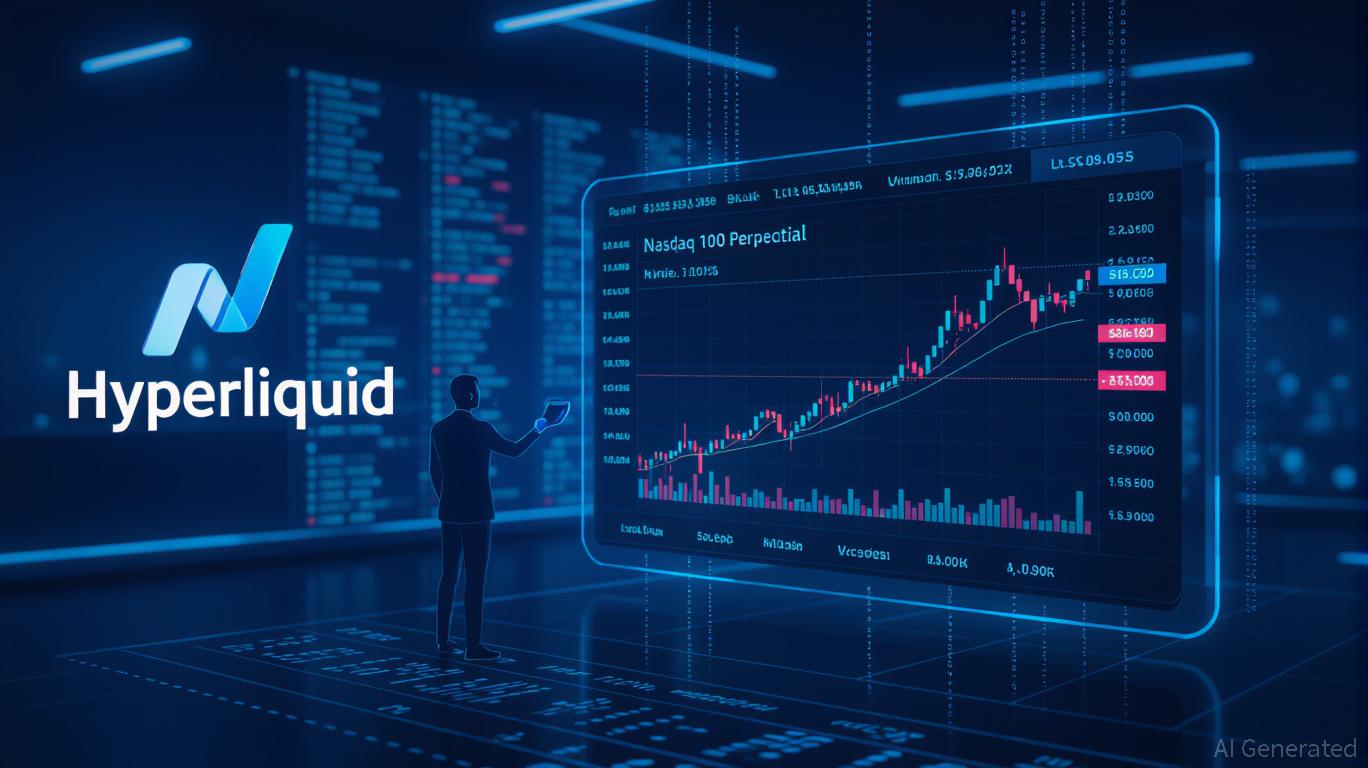Banks Introduce Hybrid Token to Challenge Stablecoin Supremacy
- Custodia Bank and Vantage Bank Texas launched a blockchain platform enabling traditional banks to issue tokenized deposits and GENIUS Act-compliant stablecoins, bridging traditional finance and crypto. - The patent-protected system integrates Custodia’s blockchain and Infinant’s Interlace network, allowing seamless conversions between tokenized deposits and stablecoins while maintaining FDIC insurance and regulatory compliance. - With the stablecoin market projected to grow to $2 trillion by 2028, the pl
Custodia Bank and Vantage Bank Texas have introduced a blockchain-based platform that enables conventional banks to issue both tokenized deposits and stablecoins, placing themselves at the cutting edge of the changing financial sector. This patented system, which incorporates tokenized deposits and stablecoins compliant with the GENIUS Act into current online banking systems, lets banks retain oversight of digital wallets while benefiting from the security and efficiency of blockchain technology, according to a
The platform builds on Custodia’s achievement in July 2025 as the first American bank to launch tokenized deposits on a public blockchain, aiming to challenge the increasing influence of private stablecoin providers. With the stablecoin sector expected to grow from $300 billion to $2 trillion by 2028, according to U.S. Treasury projections, the Coinotag article highlights the urgency for banks to embrace digital innovation to safeguard deposits and stay competitive in a digital economy. The GENIUS Act, enacted in July, has accelerated this transition by establishing clear regulations for tokenized assets, ensuring adherence to banking laws while promoting technological progress, as reported in a
The platform’s technology merges Custodia’s blockchain framework with Infinant’s Interlace network, allowing for effortless exchanges between tokenized deposits and stablecoins. A protocol currently under patent review utilizes both on-chain oracles and off-chain mechanisms to adjust tokens’ regulatory status without the need for redemption or modification, according to Decrypt. This adaptability means tokens can act as FDIC-insured deposits within banks and as stablecoins when moved to other banks or wallets, maintaining regulatory protections and enabling instant settlements. Early uses include international payments, supply chain finance, and payroll, showcasing the platform’s broad applicability, as noted in a
Securing regulatory clearance is still essential. Although pilot programs have concluded, Custodia CEO Caitlin Long stated that the platform is still awaiting final approval to expand, as previously reported by Decrypt. This reflects a wider industry movement, with more regional banks looking to adopt blockchain to boost efficiency and improve customer services. For instance, SouthState Bank Corporation recently upheld a $0.60-per-share dividend following strong third-quarter 2025 results, demonstrating confidence in its competitive strategy, according to a
This launch highlights a significant transformation in banking, where institutions are turning to technology to manage regulatory hurdles and the threat of being bypassed. By providing a ready-to-use solution for tokenized deposits, Custodia and Vantage seek to enable banks of all sizes to join the digital asset space without needing to overhaul their current systems, as mentioned in a
Disclaimer: The content of this article solely reflects the author's opinion and does not represent the platform in any capacity. This article is not intended to serve as a reference for making investment decisions.
You may also like
The Rise of Liquid Clean Energy Markets and Their Impact on Investment Opportunities
- Global energy transition accelerates liquid clean energy markets, reshaping institutional investment strategies with ESG-aligned assets. - U.S. DOE and private firms advance infrastructure, including fusion and hydrogen projects, addressing scalability and reliability. - RESurety’s CFTC-approved CleanTrade platform boosts transparency and liquidity in clean energy derivatives, enabling $16B in trading. - Institutional investors diversify portfolios with clean energy derivatives, leveraging ESG compliance

Anthropology-Inspired Advancements in Higher Education: The Impact of Cross-Disciplinary Research on Student Success and Institutional Worth
- Farmingdale State College integrates anthropology with STEM/edtech to cultivate critical thinking and cross-disciplinary skills, aligning with evolving workforce demands. - Its Anthropology Minor (15 credits) and STS program emphasize cultural context, societal implications of technology, and data-driven problem-solving for STEM-aligned careers. - Partnerships like the $1.75M Estée Lauder collaboration and $75M Computer Sciences Center demonstrate how interdisciplinary approaches attract investment and a

Clean Energy Market Fluidity and Investment Prospects: How REsurety's CleanTrade Platform is Transforming Corporate Strategies for Energy Transition
- REsurety's CleanTrade platform, CFTC-approved as the first SEF for clean energy , standardizes VPPAs, PPAs, and RECs to address market inefficiencies like fragmented pricing and low liquidity. - The platform attracted $16B in notional value within two months by offering real-time transparency, reducing counterparty risk, and enabling precise decarbonization tracking for corporations. - ESG funds leverage CleanTrade's swaps and liquidity tools to hedge price volatility, aligning with 77% of sustainable in

Hyperliquid (HYPE) Price Rally: Key Factors Behind Institutional Embrace in 2025
- Hyperliquid's HIP-3 upgrade enabled permissionless perpetual markets, driving $400B+ trading volume and 32% blockchain revenue share in 2025. - Institutional adoption accelerated via 90% fee reductions, TVL of $2.15B, and partnerships with Anchorage Digital and Circle's CCTP V2. - HYPE's deflationary model (97% fees fund buybacks) and $1.3B buyback fund fueled price surges, mirroring MicroStrategy's Bitcoin strategy. - Regulatory alignment with GENIUS Act/MiCAR and USDH stablecoin compliance strengthened
